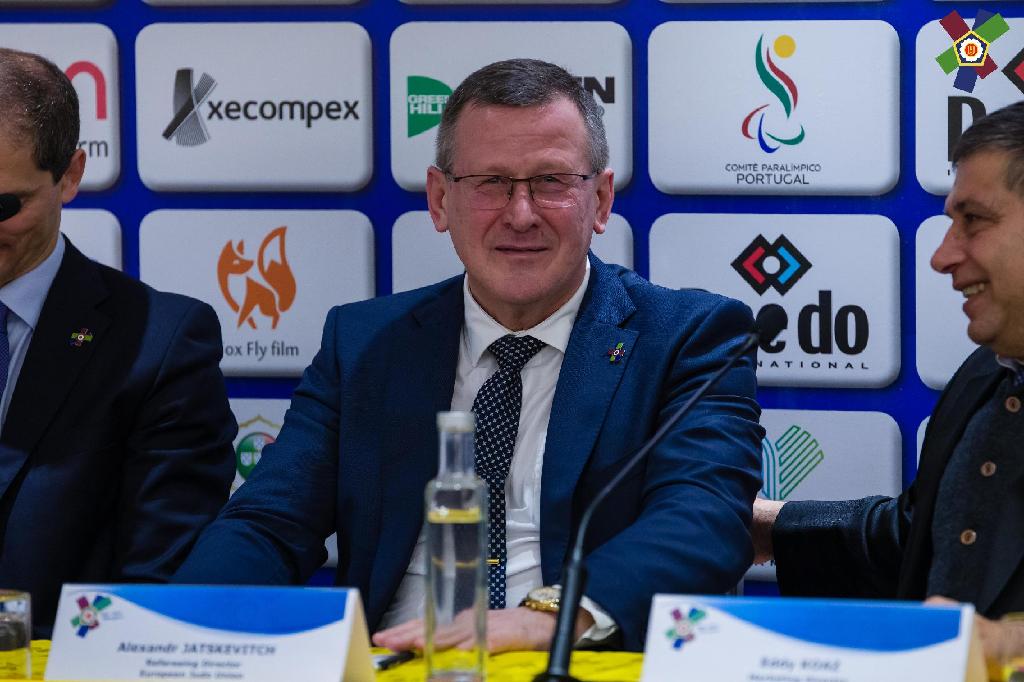Following the IJF Refereeing, Sport and Education Seminar in Doha, Qatar, we spoke with EJU Refereeing Director, Alexandr JATSKEVITCH.
Following the IJF Refereeing, Sport and Education Seminar in Doha, Qatar, we spoke with EJU Refereeing Director, Alexandr JATSKEVITCH.
Now that the Olympic Games are in sight, it is imperative that there is complete clarity for coaches and athletes alike. JATSKEVITCH explains,
The main changes in the rules were done after the Olympic Games in Rio. Nevertheless, every year since 2016 we have evaluations of many cases like connections between tachi-waza and ne-waza and vice versa.
The list continues with situations including; kaeshi-waza, stepping out or being pushed out of the mat area, valid action outside of the mat area and negative gripping, all of which need to be covered before the Olympic Games in Tokyo. As judo cannot be measured in time, weight and distance like many other sports, this seminar is an opportunity for coaches and referees to come together and discuss countless contests and their outcomes, explaining the decisions made in competition time.

For this reason, JATSKEVITCH believes we can be proud of our sport for delivering this type of review for the benefit of those in various positions in judo. Due to rule changes, coaches and athletes are constantly adopting new tactics for contests as well as adapting techniques, which is why new situations arise and require discussion.
At present, there will be a minimum of six referees attending the Olympic Games and representing Europe, there is of course hope for more.
With nine IJF events still providing olympic qualification points, there will undoubtedly be further issues to clarify, not only for referees but for athletes and coaches too. There will also be an EJU seminar held in Lisbon which will give guidelines for better preparation in the build up to the Olympic Games and all the EJU European Championships; Cadet, Junior, Senior and Veteran.
Author: Thea Cowen




